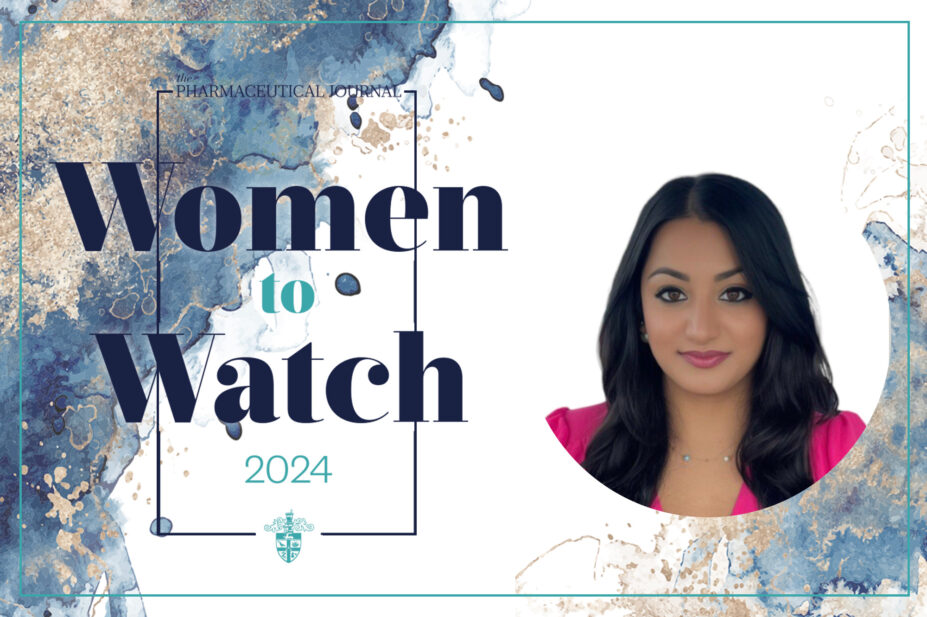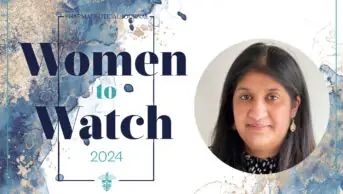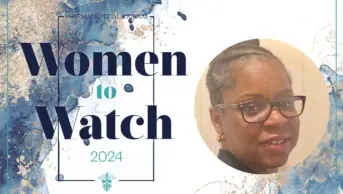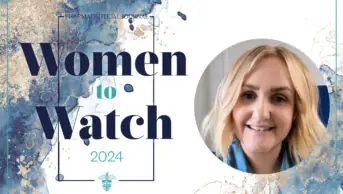
The Pharmaceutical Journal/Ruhina Kassam
Wherever there has been a transformation in pharmacy practice over the past decade, Ruhina Kassam, chief executive at Clinical Pharmacist Solutions, has been at the forefront. From digital care to the vast growth in general practice pharmacy to independent prescribing, she is clearly someone who thrives on innovation.
Pharmacy had always been her goal, ever since she saw the healthcare professionals looking after her sick father in hospital when she was seven years old. She learned all about the cocktail of medicines that was making him better. It was an interest that took her to the Medway School of Pharmacy in Kent in 2010. As soon as she had done her first two years in pharmacy, she did a clinical diploma at Robert Gordon University in Aberdeen, Scotland, alongside her independent prescribing qualification.
“I’m always thinking about the next step and what else I can do,” she says. Already working in a general practice in Orpington and a community pharmacy in Bromley, simultaneously, the next challenge on her horizon was digital healthcare. As one of the first few pharmacists to join growing healthcare tech firm Babylon, she worked on policy and clinical governance of the GP at Hand service, which gave her a valuable insight into how the NHS could work in the digital era.
“I think that is where I grew into who I wanted to be as a pharmacist. I found my niche,” she says. When the COVID-19 pandemic hit and primary care shifted overnight into remote consultations, Kassam was fully prepared to hit the ground running. By this time, she was back in the NHS working as a lead pharmacist within a primary care network (PCN) in Bromley where she spearheaded the first pharmacy hub within a PCN.
I want everyone to feel like they’re part of a supportive, collaborative team, no matter where they’re working from
In the pharmacy hub, pharmacists who had come from the community into general practice could develop and learn as part of a team. It grew and pharmacy technicians came on board; however, she could see that other PCNs were struggling to emulate what they had developed in Bromley, so she started working as an adviser to other pharmacy teams working in general practice and suddenly everything clicked.
In 2022, she joined Clinical Pharmacist Solutions, a Care Quality Commission (CQC)-registered primary care outsourcing partner, currently supporting over 150 practices across 27 integrated care boards by providing clinical pharmacist and pharmacy technician services, as a way to make best use of her unique skills. In April 2024, she took over as chief executive.
That has been the most nerve-wracking leap in her career, she admits, but it is an exciting culmination of everything she has done. She leads more than 100 pharmacists, working across 150 GP practices, as well as being a training academy. Under her direction, they signed up with the CQC mission.
Her current passion project is ‘DPP Connect’, which was borne out of frustrated pharmacists trying to find a designated prescribing practitioner (DPP) to supervise their training to become independent prescribers. “We used to have a lot of pharmacists coming to us and saying ‘my DPP has dropped out ‘or ‘I have no one to support me’, and because of the number of practices we worked with, we were able to help with those connections,” she explains.
So far, they have connected around 50 pharmacists who have completed their prescribing training. It is early days, but Kassam has plans to roll out DPP Connect widely, potentially also working with universities.
It is not as simple as finding a DPP — Clinical Pharmacist Solutions vets them to check that they are really willing and able to sign up to 90 hours of supervision.
“Our organisation is pharmacist led,” she explains. “We’ve all been through the independent prescribing process, and we’ve seen where there’s a lack of support and where it’s really good, and we’ve put that together to standardise the process [of finding a DPP and the support they provide].”
Her innovative approaches are “reshaping the profession”, her Woman to Watch nominator said, with her work significantly improving the safety and competence of pharmacists transitioning into primary care work. Our judges agreed that she had shown a knack for successfully identifying “transformation and improving opportunities” in patient care.
The one piece of advice that has stuck with her — when she has been attempting something new and challenging — was that when you’re in the cycle of change, you just need to ride out the uncomfortableness. “You do your research and get through the cycle. Now if I find something uncomfortable, I think: ‘What can I do to take this the full way’. It really caused a shift in my mentality,” she says.
Outside of work, Kassam co-chairs Aspire, a charity focused on mentoring children from disadvantaged backgrounds, providing them with the resources and guidance needed to thrive. “Mentorship is incredibly important to me,” she says. “We’ve helped over 150 youths so far, matching them with mentors who can make a real difference in their lives.”
That supportive culture is just as important at work, and she tried hard to foster an environment where team members feel comfortable sharing ideas and asking questions. It includes regular ‘Lunch and Learn’ sessions to promote interaction and knowledge sharing among remote workers. “I want everyone to feel like they’re part of a supportive, collaborative team, no matter where they’re working from,” she says.
Panel comments
“Ruhina has demonstrated successful identification for transformation and improvement opportunities supporting patient care.”
“A strong sense of innovation and problem solving, makes Ruhina a Woman to Watch this year.”
- Meet the rest of The Pharmaceutical Journal’s Women to Watch 2024 here


